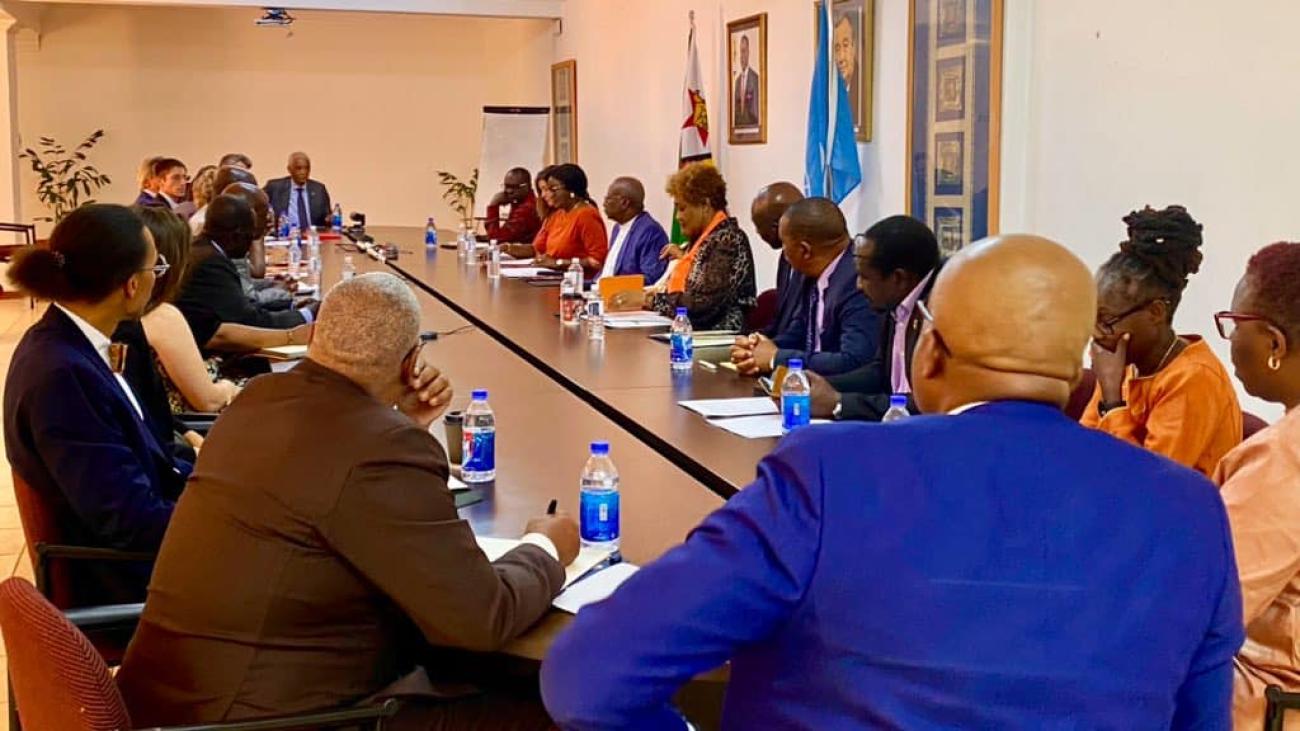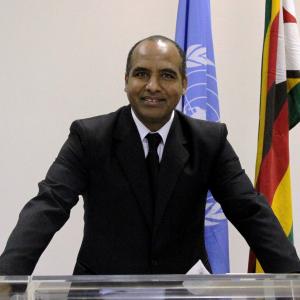10 September 2024, Harare - a pivotal dialogue unfolded as Mr. Edward Kallon, the UN Resident and Humanitarian Coordinator and the UN Country Team, engaged with the Diplomatic Corps on the much-anticipated Summit of the Future. This consultation is part of a broader series aimed at gathering diverse insights that will help shape a "Pact of the Future."
The discussions taking place in Harare are deeply interconnected with ongoing global, regional, and national conversations, highlighting the multilayered effort required to develop a comprehensive global agenda.
Set to take place on 22-23 September in New York, the Summit of the Future will align with the 79th Session of the UN General Assembly and is expected to draw leaders worldwide, co-facilitated by Germany and Namibia.
The summit aims to forge a renewed international consensus geared towards lasting improvements by Member States for both current and future generations. At its core lies the revitalization of a multilateral framework that has served global common good for over seven decades.
The Harare consultations serve as a reflective platform to envision what a 'Pact of the Future' should encompass. These discussions strive to solidify commitments rooted in the UN Charter, emphasizing global cooperation essential for human survival and planetary sustainability in the face of pressing issues such as climate change, social inequality, and persistent global conflicts.
Zimbabwe's contributions to this broader engagement process are uniquely valuable, advocating for substantial investments in infrastructure reminiscent of a modern-day Marshall Plan. This approach aims to address significant national debts and foster sustainable development.
Key themes emerging from these consultations focus on global solidarity and the transformative potential of international collaboration. Locally, initiatives such as the World Food Programme’s urban resilience programme in Bulawayo, funded by the Swiss for Development and Cooperation, exemplify how empowering communities can cultivate pathways to prosperity.
Furthermore, cooperative projects like UNICEF and the Food and Agriculture Organization's solar-powered water system in Matobo, backed by the European Union, showcase the direct advantages of coordinated action against climate-induced challenges.
One of the most inspiring aspects was observing the unity and resilience within Umguza District, where community-driven initiatives, such as women's safe spaces established by UNFPA with support from the UN Central Emergency Response Fund, are effectively addressing gender-based violence, notably through the inclusion of male allies.
These local successes highlight the potential of international collaboration and multilateral agreements to enact meaningful change. However, achieving scalability and sustainability demands more robust efforts. The UN Secretary-General's policy brief proposes a target of $4.2 trillion, necessitating an annual stimulus of $500 billion to achieve the Sustainable Development Goals (SDGs).
This ambition calls for enhanced development financing, debt relief, technology transfer, and equitable trade policies from developed nations towards their developing counterparts.
As the world approaches the Summit, there’s a shared understanding of the urgency for an equitable global governance system. This must include balanced trade practices, effective debt relief mechanisms, comprehensive technological exchanges, and united climate action aimed at safeguarding vulnerable communities around the globe.
The endeavor to craft a broad-based Pact of the Future is intricate and multifaceted, requiring the input of diverse voices and perspectives.
Conversations like those in Harare are crucial in enriching a global agenda that upholds peace, sustainability, and shared prosperity. As Mr. Kallon noted, genuine progress depends on harmonizing international efforts with local actions, paving the way for a more resilient and inclusive world.



